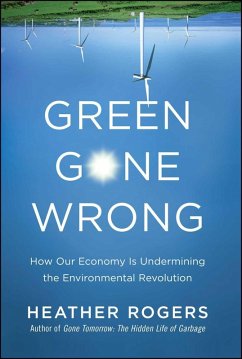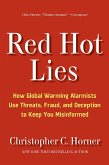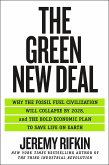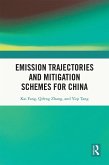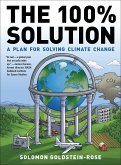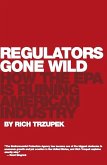In Green Gone Wrong environmental writer Heather Rogers blasts through the marketing buzz of big corporations and asks a simple question: Do today's much-touted "green" productscarbon offsets, organic food, biofuels, and eco-friendly cars and homesreally work? Implicit in efforts to go green is the promise that global warming can be stopped by swapping out dirty goods for "clean" ones. But can earth-friendly products really save the planet?
This far-reaching, riveting narrative explores how the most readily available solutions to environmental crisis may be disastrously off the mark. Rogers travels the world tracking how the conversion from a "petro" to a "green" society affects the most fundamental aspects of lifefood, shelter, and transportation. Reporting from some of the most remote places on earth, Rogers uncovers shocking results that include massive clear-cutting, destruction of native ecosystems, and grinding poverty. Relying simply on market forces, people with good intentions wanting to just "do something" to help the planet are left feeling confused and powerless.
Green Gone Wrong reveals a fuller story, taking the reader into forests, fields, factories, and boardrooms around the world to draw out the unintended consequences, inherent obstacles, and successes of eco-friendly consumption. What do the labels "USDA Certified Organic" and "Fair Trade" really mean on a vast South American export-driven organic farm? A superlow-energy "eco-village" in Germany's Black Forest demonstrates that green homes dramatically shrink energy use, so why aren't we using this technology in America? The decisions made in Detroit's executive suites have kept Americans driving gas-guzzling automobiles for decades, even as U.S. automakers have European models that clock twice the mpg. Why won't they sell these cars domestically? And what does carbon offsetting really mean when projects can so easily fail? In one case thousands of trees planted in drought-plagued Southern India withered and died, releasing any CO2 they were meant to neutralize.
Expertly reported, this gripping exposé pieces together a global picture of what's happening in the name of today's environmentalism. Green Gone Wrong speaks to anyone interested in climate change and the future of the natural world, as well as those who want to act but are caught not knowing who, or what, to believe to protect the planet. Rogers casts a sober eye on what's working and what's not, fearlessly pushing ahead the debate over how to protect the planet.
This far-reaching, riveting narrative explores how the most readily available solutions to environmental crisis may be disastrously off the mark. Rogers travels the world tracking how the conversion from a "petro" to a "green" society affects the most fundamental aspects of lifefood, shelter, and transportation. Reporting from some of the most remote places on earth, Rogers uncovers shocking results that include massive clear-cutting, destruction of native ecosystems, and grinding poverty. Relying simply on market forces, people with good intentions wanting to just "do something" to help the planet are left feeling confused and powerless.
Green Gone Wrong reveals a fuller story, taking the reader into forests, fields, factories, and boardrooms around the world to draw out the unintended consequences, inherent obstacles, and successes of eco-friendly consumption. What do the labels "USDA Certified Organic" and "Fair Trade" really mean on a vast South American export-driven organic farm? A superlow-energy "eco-village" in Germany's Black Forest demonstrates that green homes dramatically shrink energy use, so why aren't we using this technology in America? The decisions made in Detroit's executive suites have kept Americans driving gas-guzzling automobiles for decades, even as U.S. automakers have European models that clock twice the mpg. Why won't they sell these cars domestically? And what does carbon offsetting really mean when projects can so easily fail? In one case thousands of trees planted in drought-plagued Southern India withered and died, releasing any CO2 they were meant to neutralize.
Expertly reported, this gripping exposé pieces together a global picture of what's happening in the name of today's environmentalism. Green Gone Wrong speaks to anyone interested in climate change and the future of the natural world, as well as those who want to act but are caught not knowing who, or what, to believe to protect the planet. Rogers casts a sober eye on what's working and what's not, fearlessly pushing ahead the debate over how to protect the planet.
Dieser Download kann aus rechtlichen Gründen nur mit Rechnungsadresse in A, B, BG, CZ, D, DK, EW, E, FIN, F, GR, HR, H, I, LT, L, LR, NL, PL, P, R, S, SLO, SK ausgeliefert werden.

